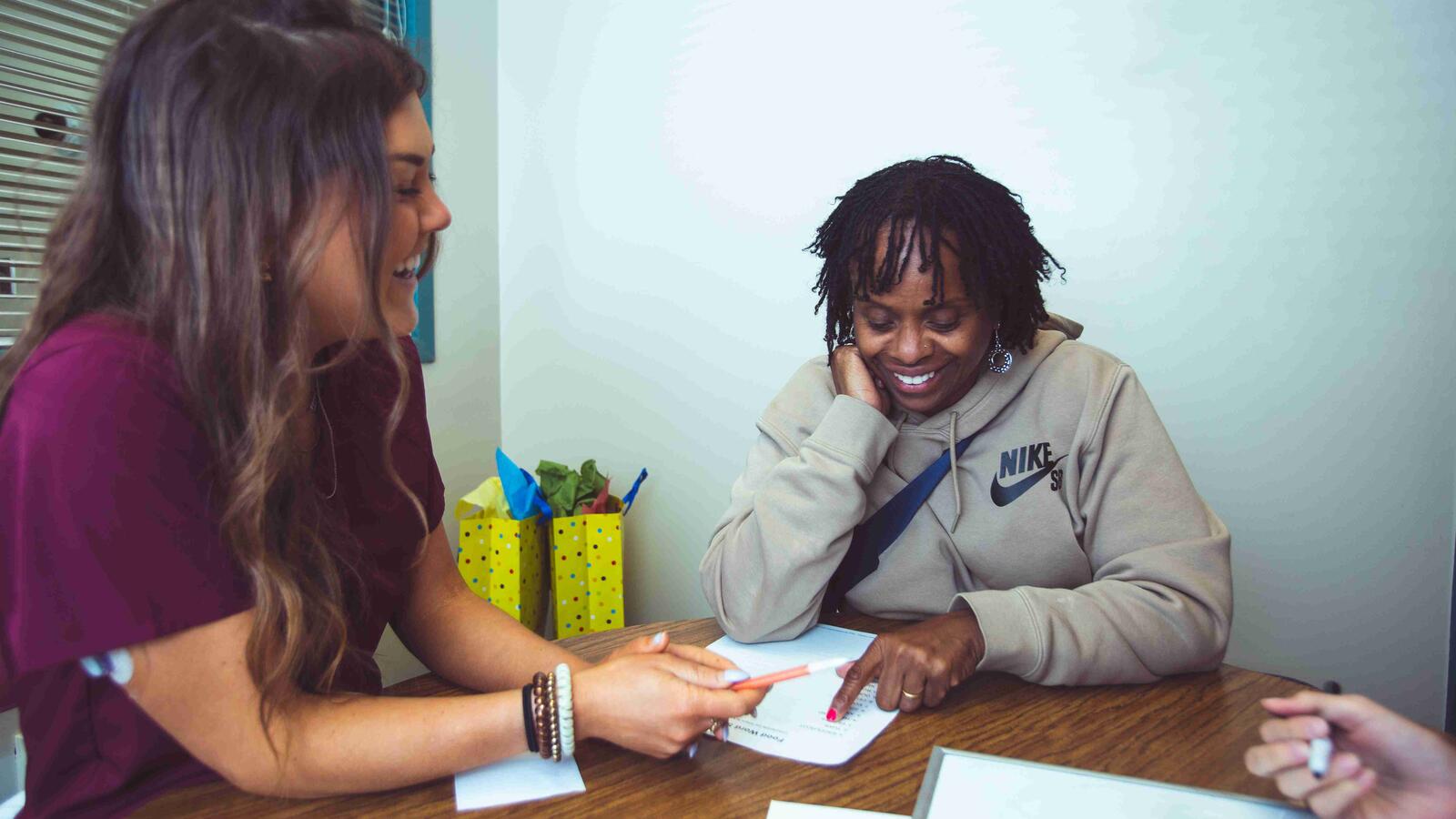Helen Lupton-Smith, Ph.D., joined North Carolina Central University (NCCU) in January 2021 with a mission: to give clients a voice in counseling research. Now, thanks to NCCU's Faculty Research Awards Program (FRAP), she is doing exactly that.
"There's not a lot of studies out there in the counseling literature that give the microphone to the client," said Lupton-Smith, program co-coordinator for NCCU's Counselor Education Program. "We wanted to really hear from them directly – how's it working at the clinic? Why do you come to us as opposed to go somewhere else?"
The Eagle Counseling, Consultation and Research Clinic (ECCRC) opened in August 2022 on the second floor of the School of Education. Operating on a sliding scale with most clients receiving free counseling, the clinic serves community members and university students ages 13 and up. Graduate students in the clinical mental health counseling program provide services under faculty supervision.
"It was developed to fill a gap to help people who couldn't get counseling, to receive counseling, because we don't have to take health insurance," Lupton-Smith explained.
FRAP provides grants up to $10,000 to support faculty research addressing pressing issues at local, regional and national levels. The grants aim to promote impactful research while encouraging collaboration among faculty members.
Lupton-Smith's FRAP grant funded a study examining 21 participants across multiple sessions, using both quantitative and qualitative assessments to measure client access, satisfaction and wellness over time. The funding was used for compensating participants with gift cards and hiring research assistant Trent Stamer, a student in his final year of NCCU's Clinical Mental Health Counseling graduate program, who handled data collection.
The research had challenges. "During the data collection period, sometimes Trent would have to reach out to clients multiple times, or they might no-show for their scheduled research appointments," Lupton-Smith said.
Alyx Beckwith, Ph.D., and Lupton-Smith were co-principal investigators on the FRAP proposal. Bredell Moody, Ph.D., was instrumental with the data analysis. Maria Reynolds, program alumni and statistician, performed the quantitative analysis for the study.
The team also navigated building renovations that forced the clinic to go virtual for a semester. "I think it's easier sometimes to get people when they're in person to complete their data point and their assessments than when you're virtual."
Despite these hurdles, the team finished data collection this spring and completed analysis over the summer. They will present findings at the Association for Counselor Education and Supervision conference in Philadelphia in October, with Stamer as co-presenter. Plans include submitting the study to a major counseling journal with Stamer listed as a high-level co-author.
"We got mostly positive feedback," Lupton-Smith said. "They gave us feedback that we are responsive, we're affordable... Our counselors are approachable. They're very welcoming of all identities."
Future research could include examining community partnerships and student experiences working within the clinic's multicultural, social justice framework.
